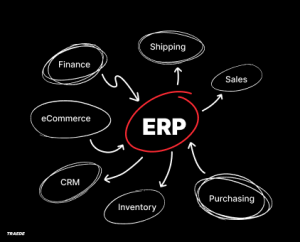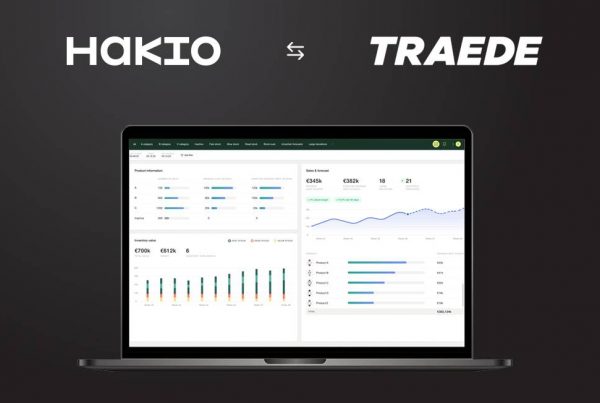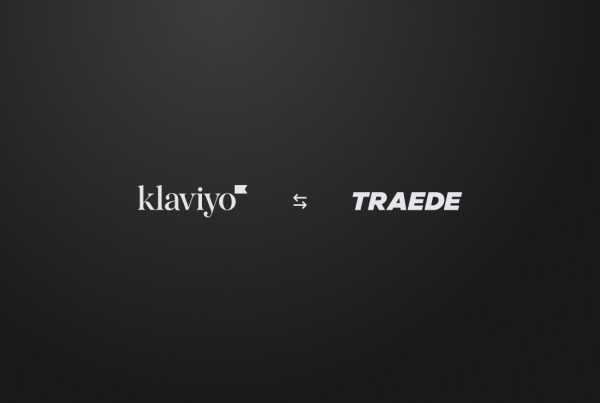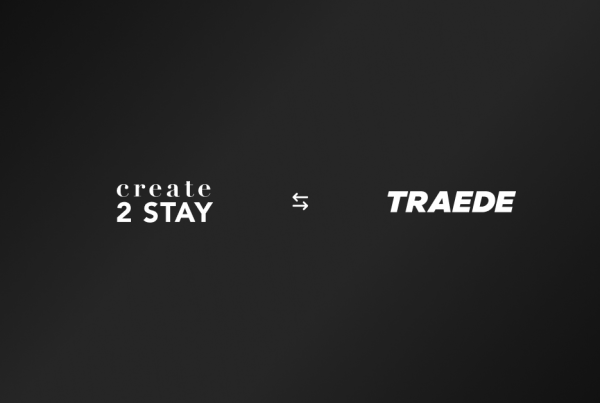Choosing an ERP-system is hard. Whether you are looking to invest in an ERP-system for your business for the very first time or considering making a switch from your existing one, choosing a suitable ERP-system for your business can be quite daunting. On a positive note, there are an increasing number of alternatives, but how do you decide and what you should look for when choosing your next ERP-system? Here are the 5 most important things to consider.
- Functionality
- Integrations
- Training and support
- Pricing
- Development
Functionality
- Define needs and requirements
Break down your needs and software requirements and make sure to get input from all relevant stakeholders from each department. Describe each department’s processes and be as detailed as possible.
By doing so, you typically find that you can narrow it down to just a few alternatives that can match your requirements, while minimising the risk of overlooking things during demo presentations.
- Cross-department alignment and understanding the “why”
Implementing a new ERP-system will undoubtedly benefit some departments more than others. Although you must base your decision on an overall rating it is typically one or two areas that are the most important to your business, for instance fulfilment flow and B2B Sales suite. Make sure that your teams are aligned and understand the perspective of optimising the business as a whole opposite to just one area.
- Look at your peers and for an industry tailored solution
Although making a detailed requirement spec will help it is definitely a good idea to talk with peers and get their input. Also, looking for an industry tailored ERP-system can be a good idea.
Integrations
- Suite of standard integrations
When it comes to integrations you will experience that it varies quite a lot with the number of available options from one solution to another. Although the optimal solution for you is that all integrations you need are standard, you might also encounter the need to make integrations through third parties or even some integrations not being possible at all.
- API
Depending on your size and the importance of an integration, it is great if you have access to API documentation. This way, there are middleware integrations that can connect the ERP-system to a third party, for instance a warehouse (WMS) or a Marketplace. Many ERP-systems still work quite well with third parties sending flat files to a server.
- Is the integration scheme of the ERP platform future-proof?
As it stands, many companies find themselves in a position of weakness, with an outdated ERP-system that disables their competitiveness, by not being able to integrate with new software. Don’t make the same mistake. You must have confidence in your next ERP-system as it should enable you for many years to come – not the contrary.
Training & Support
- Onboarding
Don’t just look at the here and now, rather ask in detail about how their respective onboarding flow works. What is the timeline? Do they offer a dedicated onboarding manager? Is their onboarding team in-house or outsourced to a third party? The success of your new system depends on the onboarding process, so make sure you don’t take onboarding lightly. It is crucial that all parties involved prioritise the onboarding.
- Ongoing Support
Good support is undoubtedly one of the most important factors to consider. You and your team will occasionally need help, experience a bug in the system or need guidance and good support should preferably not be too far away. Some ERP providers only allow an admin to reach out, others work strictly by e-mail and chat. Make sure to understand their setup, for instance opening hours and ways to get in touch, and decide whether it aligns with your needs or not.
- Knowledge Base and courses
How are the possibilities post onboarding to self-educate, resolve or set up specific features, or onboard new team members? The next generation of ERP-systems will offer a full suite of courses and material for you to use at your convenience.
Pricing
- Understanding the pricing structure
There are many different price models out there and like everything else in business, good things don’t come cheap. Remember that when you are browsing platforms. If it sounds too good to believe, it is because it probably is.
Some platforms base their pricing on usage, for example pay per licence or per order, while others take a cut of your turnover. Whichever is best varies from case to case. With that said, you should be aware of if there are other costs to take into consideration. Some of the most common ones that platforms will charge you for are integrations, onboarding (one-time fee) and even in some cases for support.
- Alternatives and packages
Some platforms are “one-size-fits-all” and don’t leave out any wiggle room. Others are feature and usage based and offer different packages. When probing the market make sure to also find inspiration in regards to price-model and make sure to discuss your preferred model with each. It doesn’t cost you anything to ask and who knows, maybe your wish can be accommodated.
- ‘Lock it’ for as long as you can
Most companies have a max amount in mind when looking for new software, but they forget to look at the development in pricing over time. Don’t make the mistake of thinking the price is fixed, but make sure that it actually is when negotiating your deal. Having said this it is also important that you don’t squeeze the lemon as that could lead to a worse service provided.
Development
- Communication and dialogue
Which kind of communication do you wish to have with your new ERP provider when it comes to Development? Do you prefer to have a ‘say’ in all future developments or to use an ‘of-the-shelf’ industry standard that develops based on feedback from many, you inclusive? In recent years the trend has moved towards choosing off-the-shelf solutions that have been faster and easier to implement.
- Historical roadmap
The best way to understand what to expect from your new ERP-platform (development wise) is to ask the sales rep about what has been released in recent times. Most platforms have a newsletter that they share with their customers and reviewing this, will give you a strong indication of how fast, or slow, they will develop new features and improvements going forward.
- Future roadmap
Not all platforms can or will share their roadmap, but it can’t hurt to ask. In general, development teams work on fixes, improvements and new features. If you choose to go with an industry standard the chances of a mismatch in regards to future needs and requirements are minimised.



